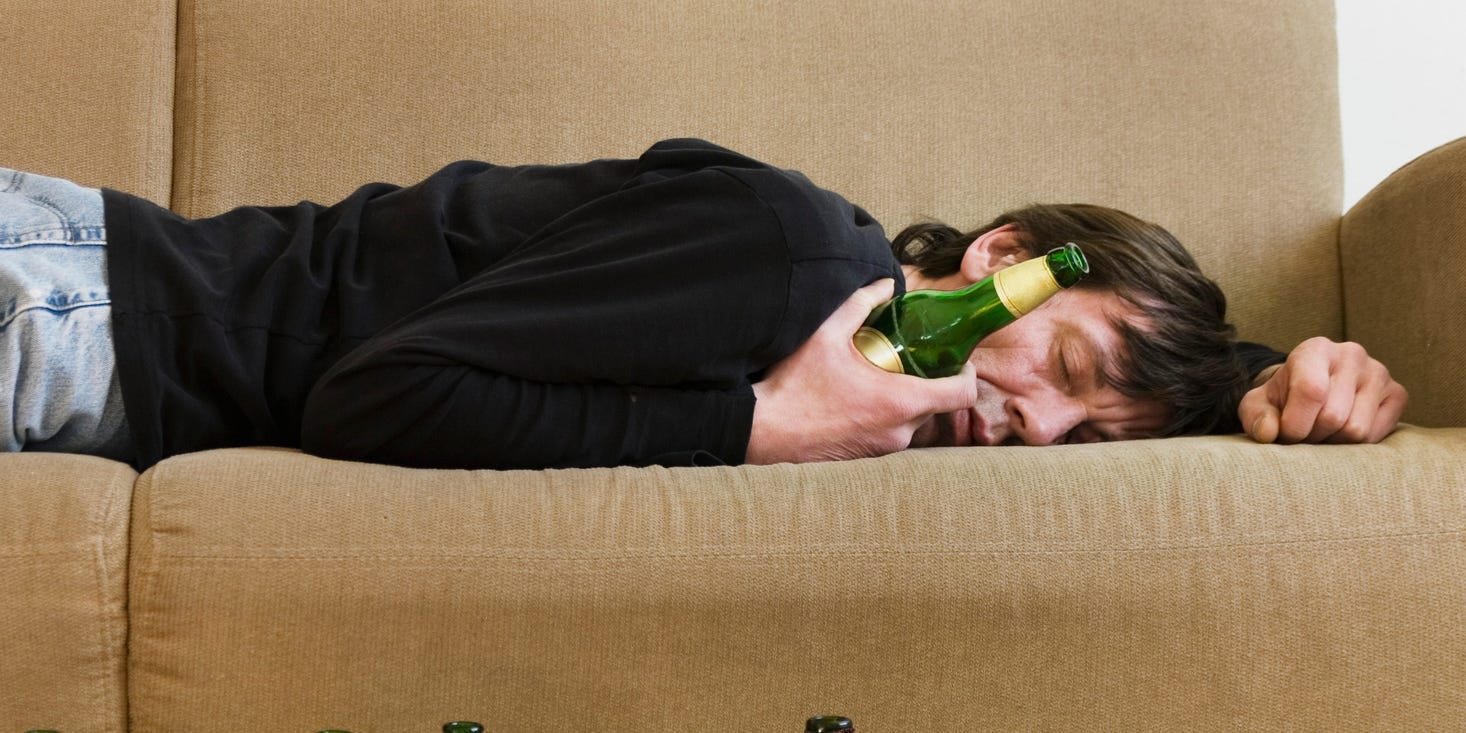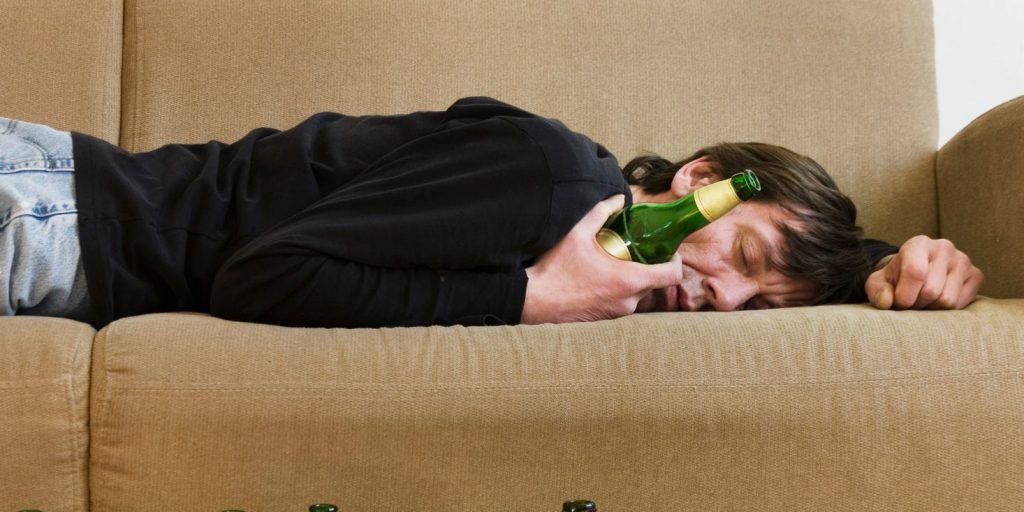
westend61/Getty Images
- While alcohol can help you sleep temporarily, it does not lead to better quality sleep.
- Alcohol can delay REM sleep, which can contribute to health issues like depression and anxiety.
- It can also lead to more frequent urination, which means you might have to keep getting up at night.
- Visit Insider's Health Reference library for more advice.
Yes, alcohol can make you drowsy and help you fall asleep, but overall, it results in poorer sleep quality throughout the night.
"When you are taking something artificial to induce sleep, or prolong sleep, such as alcohol, it does not do anything to restore the brain and the body," says Keith Heinzerling, MD, internist and addiction medicine specialist at Providence Saint John's Health Center. "It is not the same good sleep that you would get if you naturally fell asleep without the aid of this sedative."
About 30% of people with insomnia report using alcohol to help them sleep. But it's not an effective treatment for sleep issues. In fact, here are four ways that alcohol can negatively impact the quality of your sleep.
1. Alcohol interrupts your circadian rhythms
Alcohol can disrupt your circadian rhythms, which typically help you fall asleep at night.
Circadian rhythms are set by your body's internal clock. These nerve cells in the brain coordinate your daily physiological functions and prepare your body for sleep at night.
One of the biggest ways alcohol disrupts this rhythm is by suppressing the production of melatonin - a hormone also produced by these nerve cells that further promotes sleep.
A 2007 study published in Chronobiology International even found that a moderate amount of alcohol consumed an hour before bedtime reduced melatonin production.
The participants in the study drank about 0.5g of vodka per pound of body weight, and about two and a half hours after, their levels of melatonin were reduced by 19% when compared to those who didn't drink alcohol.
2. Alcohol blocks REM sleep
A 2013 review of 27 research studies published in the journal Alcoholism: Clinical and Experimental Research found that alcohol reduces the overall amount of REM sleep.
REM, or rapid eye movement, is the stage of sleep that stimulates parts of the brain to help with memory consolidation and learning. Not getting enough REM sleep can contribute to further health issues, like depression and anxiety, and can increase your risk of developing dementia.
Typically, your first REM cycle happens about 90 minutes after you fall asleep, but after drinking alcohol, the onset of REM sleep is delayed. According to the 2013 review, the more you drink before going to sleep, the less REM sleep you'll get.
Moreover, as the alcohol metabolizes and leaves your system, you're more likely to wake, resulting in less restorative sleep throughout the night.
3. Alcohol can lead to frequent urination at night
Alcohol is a diuretic, meaning it increases urination more than consuming the same amount of non-alcoholic liquids, Heinzerling says.
That's because alcohol suppresses vasopressin, a hormone that regulates the amount of water absorbed by your kidneys. Without the right level of this hormone, your kidneys store less water and put more into your bladder for urination.
A small 2010 study published in Alcohol and Alcoholism examined the diuretic effects of one liter of beer on 12 men. Researchers found the subjects' urine output increased from 2% to 4% compared to when they consumed a non-alcoholic drink.
4. Alcohol worsens breathing problems while sleeping
Alcohol depresses your central nervous system and slows down your heart rate and respiratory system, which can make it more difficult to breathe. When taken with other sedatives, like sleeping pills, the combination can even be fatal.
Alcohol also relaxes your breathing muscles, which can exacerbate breathing problems for someone with sleep apnea, as well as induce symptoms of sleep apnea, like snoring, in people without the condition.
Sleep apnea, or when you temporarily stop breathing throughout the night, is a major disruption in sleep quality, even if you don't remember waking up, Heinzenberg says.
"The breathing is inhibited by the fact that the airways are relaxed," Heinzenberg says. "And sedatives, especially alcohol, even in someone without sleep apnea, reduce those reflexes that are there to keep the airway open."
Insider's takeaway
Because alcohol can inhibit restorative sleep, Heinzenberg recommends steering clear of drinking these beverages as a way to help you fall asleep.
Other beverages may work better. For example, a warm cup of chamomile tea can promote sleepiness without the harmful effects of alcohol.
Overall, if you're consistently having trouble falling asleep or staying asleep, talk with your doctor about identifying and treating the source of your sleep issues.
